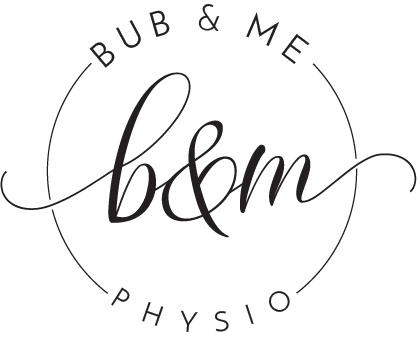Why every pregnant woman should see a women’s health physiotherapist at least once during their pregnancy.
Pregnancy for many women is generally a very exciting time, but can also be filled with many unknowns and significant change. There’s the obvious growing baby bump, abdominal muscle separation, hormonal changes and those aches and niggles. You’re a bit unsure what’s normal and what’s not. You’re unsure whether you have to put up with these aches and pains for the rest of the pregnancy because let’s face it, this pregnancy is going to seem really long if you do. Not to mention, it's the first time in your life so many people have mentioned the term ‘pelvic floor’ and ‘kegels’. Enter the women’s health physio (WHP)..
Just like that amazing hairdresser that you never want to let go of, when you find out that you are pregnant, make sure you nab a great WHP. Once you’ve found one, they’ll be with you for life, from pregnancy through to menopause!
1. Your pelvic floor
Having your pelvic floor assessed by a WHP is important to ensure that it is functioning well in order to reduce the risk of postpartum incontinence and to increase the likelihood of a smoother and faster labour. By doing this assessment, the physio will also be able to identify whether you have a higher risk of pelvic floor dysfunction and can then provide you with strategies to mitigate this risk.
2. Treatment and prevention of pelvic girdle pain
Have you heard of lightning crotch, symphysis pubis dysfunction (SPD) or sacroiliac joint (SIJ) pain? The collective term ‘pelvic girdle pain’ or ‘PGP’ is quite common, affecting up to 1 in 5 women during pregnancy. Without proper management, this condition can be very debilitating and can limit exercise capacity and active birthing. WHPs can identify whether you are at risk of developing PGP and treat those who already have it, improving their ability to stay fit and healthy during their pregnancy.
3. Birth preparation
This is a big one! WHPs can do a lot to help you in this space. Let’s dot point them:
Pelvic floor relaxation - most women know that they need to do their Kegels to keep their pelvic floor strong during pregnancy, but what many don’t realise is that your pelvic floor can also be tight and struggle to relax, making it difficult for the baby to pass through the birth canal. Your WHP will determine whether this is the case for you and devise a specific pelvic floor program to optimse your pelvic floor for your birth!
Perineal massage - Want to reduce the risk of a severe tear? This is one way to do it! At or after 34 weeks of pregnancy, your WHP will take you through the ins and outs of perineal massage, ensuring you are doing it correctly and effectively. Read more about perineal massage in our blog.
Active birthing - This type of birthing can help you manage and take control during labour. If you have PGP, your WHP can show you different positions that might work for you, still allowing you to have an active birth.
Pain relief - Your physio can show you various massage techniques to help with pain during labour. They may also recommend an obstetric TENS machine and will show you how to use this for pain relief.
Pushing technique during labour - At the end of the day, the best way to push is the way you feel like you should, listen to your body! There is however, an optimal way to do this to reduce the risk of pelvic floor dysfunction, tearing and prolapse. Your WHP can teach you this prior to your birth to help give you the best chance of having the birth you want. Check out our blog on this topic here.
4. Management of incontinence and prolapse
Any kind of leakage, bulging and heaviness in the vagina are not normal symptoms during pregnancy. If this is happening to you during pregnancy, see your WHP now! They will help you manage these symptoms, reducing the risk that you will experience them after delivery.
5. Developing a relationship prior to your 6 week postpartum checkup
Birth is such a personal experience, and knowing that you have a supportive health professional that you already have a good relationship with will make it more likely for you to book in for your 6 week postpartum assessment. This 6 week assessment is a MUST. This is where your WHP will identify and manage your risk of postpartum incontinence, prolapse, abdominal separation, pelvic girdle pain and not to mention guide you through getting back into exercise and other activities safely.
There are so many other reasons to see a WHP during pregnancy including providing advice on exercise and sleep during pregnancy, advice on recovery in the early postpartum period and treating any other aches or pains that you may have, allowing you to have the best pregnancy possible!




